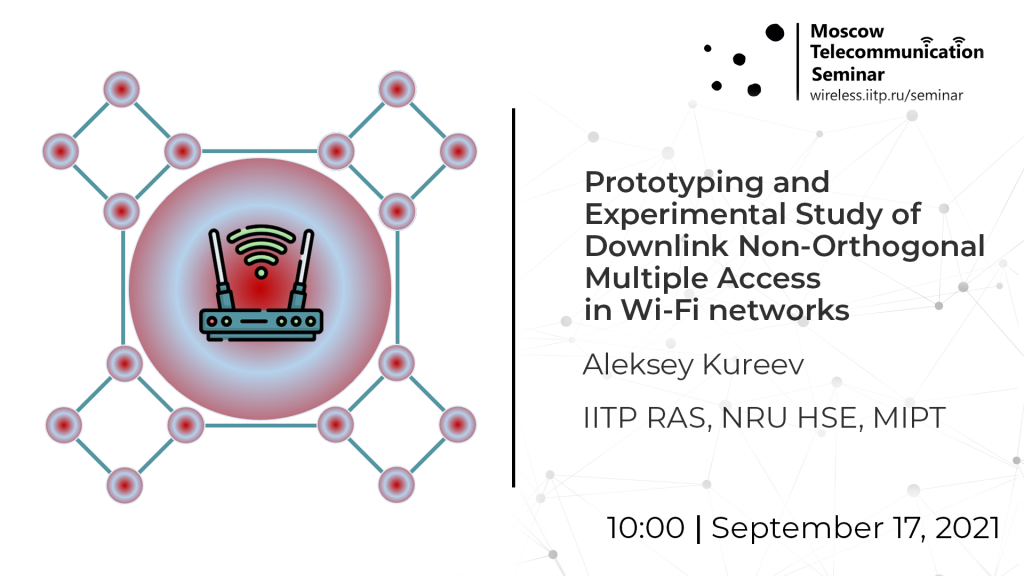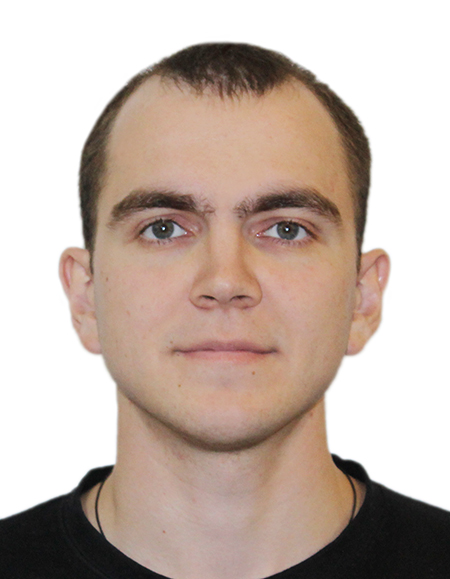[SEMINAR] September 17, 2021 – Aleksey Kureev – Prototyping and Experimental Study of Downlink Non-Orthogonal Multiple Access in Wi-Fi networks

We are happy to invite you to the next talk of Moscow Telecommunication Seminar which will be held at 10.00 (MSK, UTC+03:00), on Friday, September 17, 2021, in Zoom. Click here to show the seminar start time in your timezone.
Note: the language of the seminar is Russian.
Title: Prototyping and Experimental Study of Downlink Non-Orthogonal Multiple Access in Wi-Fi networks.
Speaker: Aleksey Kureev, IITP RAS, NRU HSE, MIPT.
Abstract: Non-Orthogonal Multiple Access (NOMA) is a promising way to increase spectral efficiency in wireless networks. It is based on the division of the power between multiple users. With NOMA, a single device can transmit data to multiple devices using only one antenna at the same time and frequency. The great advantage of NOMA is its great adaptability to existing multiple access techniques like frequency division multiple access and spatial division multiple access. As the result, NOMA attracts huge attention for IEEE 802.11 working group, responsible for Wi-Fi development.
In a talk based on his Ph.D. thesis, Aleksey Kureev explain the fundamentals of NOMA and discuss the main techniques that are used for signal generation and reception in NOMA systems. Aleksey presents recent results on the experimental study of downlink non-orthogonal multiple access in Wi-Fi networks.

Bio: Aleksey Kureev obtained his master’s degree in Applied Mathematics and Physics from the Moscow Institute of Physics and Technology in 2017. Currently, he is a researcher in Wireless Networks Lab, IITP RAS, a researcher at Laboratory of Telecommunication Systems (MIEM HSE), and Ph.D. student in MIPT. His research interests include reconfigurable intelligent surfaces, massive machine-to-machine communication, ultra-dense networks, and SDR prototyping of various radio access technologies.
The seminar is free and open.
To join the seminar, please fill in the form. To get more information about the seminar, please visit this page.
